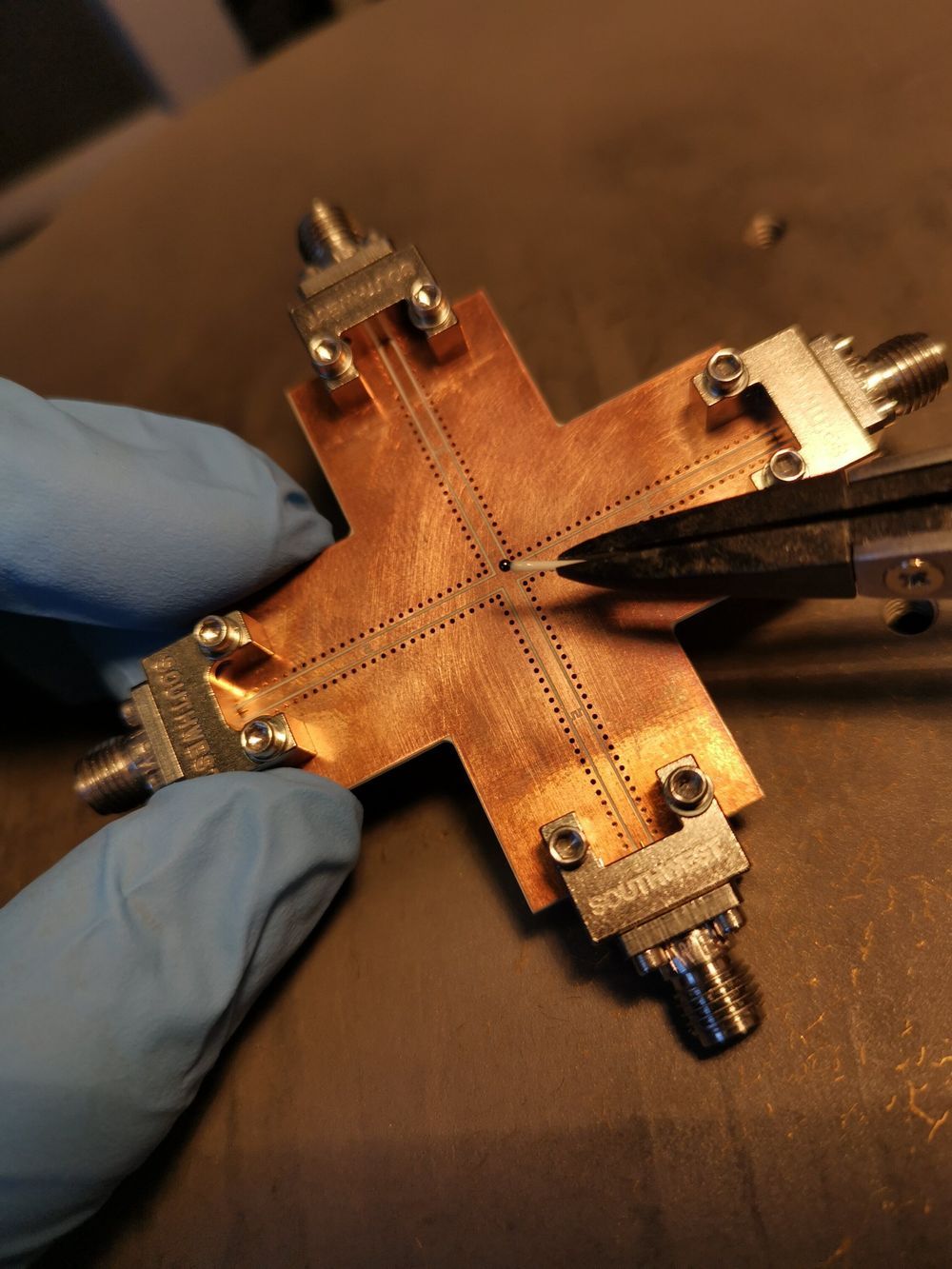As quantum objects are susceptible to their surrounding environment, quantum coherence and quantum states can easily be destroyed due to the impact of external signals, which can include thermal noise and backscattered signals in the measurement circuit. Researchers have thus been trying to develop techniques to enable nonreciprocal signal propagation, which could help to block the undesired effects of backward noise.
In a recent study, members of the dynamic spintronics group at the University of Manitoba in Canada have proposed a new method to produce dissipative coupling in hybrid quantum systems. Their technique, presented in a paper published in Physical Review Letters, enables nonreciprocal signal propagation with a substantial isolation ratio and flexible controllability.
“Our recent work on nonreciprocity in cavity magnonics is grounded in a research area combining cavity spintronics and hybrid quantum systems, which holds promise for constructing new quantum information processing platforms,” Yi-Pu Wang, a postdoctoral researcher at the University of Manitoba who was involved in the study, told Phys.org.
